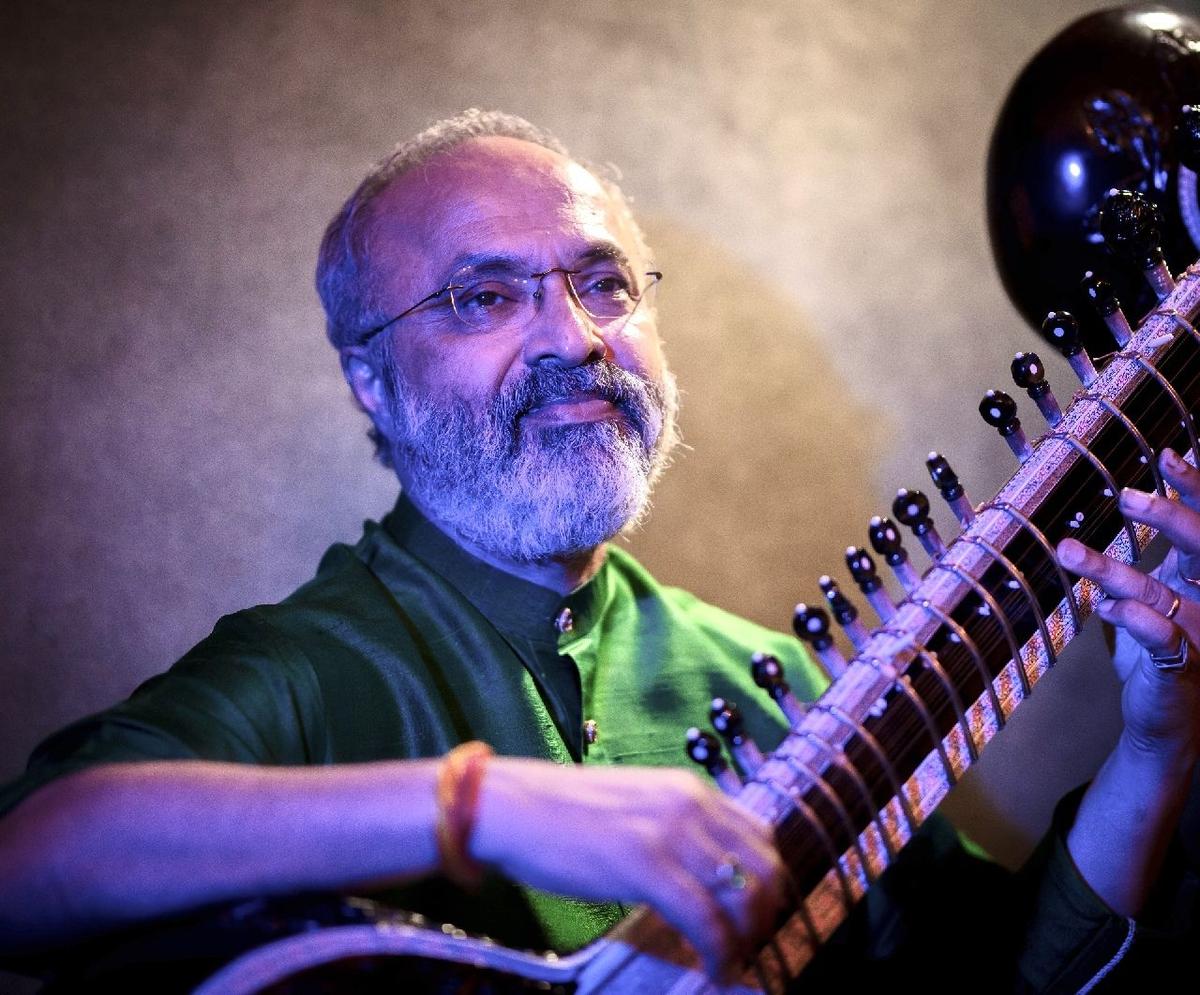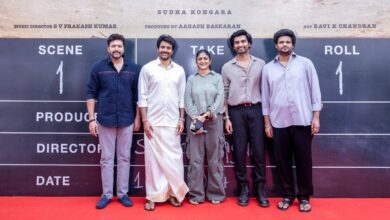Sitar Rama Rao Utsav to be held in Bengaluru on November 30

The first edition of Sitar Rama Rao Utsav will be held in Bengaluru on November 30. “The event celebrates the legacy and the contribution of my father, NR Rama Rao to the world of classical music,” says sitarist Shubhendra Rao.
Speaking from over phone from Delhi, Shubhendra continues, “I plan to make it an annual event and institute an award in my father’s name, which we plan to give to senior musicians and to those who have contributed to music. We also plan to start a scholarship for young musicians so that they can pursue classical music.”
“My father passed away 20 years ago and I have been thinking of initiating something in his memory. I was busy with my life and music to start anything earlier. Everything has come together now and here we are organising the very first Utsav in my father’s name.”
Shubhendra, like his father is trained under legendary sitarist, Pandit Ravi Shankar. Rama Rao was associated with Bhartiya Vidya Bhavan for over two decades and an empanelled artist of ICCR. Rama Rao performed all over the world and is recognised for his contribution to popularising sitar and North Indian music in Karnataka. Rama Rao was honoured with the Karnataka Rajyotsava Award, State Sangeet Natak Akademi Award and the prestigious T Chowdiah Award.
Born in Mysuru, Shubhendra grew up in Bengaluru and moved to Delhi when he turned 18 to learn under Ravi Shankar. “I am fortunate to be associated with guruji (Ravi Shankar) and lucky to be born to my parents as they introduced me to the world of music.”
In their home, with the images of deities, they also had a photo of Ravi Shankar, Shubhendra says. “He was worshipped for his music and as our guru, is all pervading. In the world of music my father is called ‘Ram bhakt Hanuman, Ravi bhakt Rao’, comparing the love between Lord Ram and Hanuman to the regard he had for Ravi Shankar.”
Rama Rao, was one of Ravi Shankar’s closest students, Shubhendra says. “Guruji reciprocated his love. In fact, I am even named after guruji’s son, Shubendra.”
Ravi Shankar, Shubhendra says, had the ability to invoke all the navarasas in his music. “He was a complete artist and had a childlike zeal to learn, a quality he kept alive even when he was 90!”
The Utsav this year will feature two concerts — one by Shubendra and Bickram Ghosh, and the other by Hariprasad Chaurasia and Ravindra Yavagal (tabla).
“Bickram is a good friend and there is a lot of similarity in the manner in which we have been brought up. Both of us come from families where our parents were steeped in music. I wanted to bring artistes, who knew my father personally and were aware of his work and contribution to music.”
Unfortunately, Shubendra says, many of his father’s peers are no more. “Hariji (Chaurasia) is not only a dear friend of the family, but also my wife’s (Saskia Rao-de Haas, a cellist and composer from Netherlands) guru. I felt it would be apt for Hariji to be a part of this utsav. He agreed the moment he was asked. I can’t expect a better blessing than having Hariji inaugurate the utsav.”
This year’s award, Shubendra says, is in honour of the late Dr Rajeev Taranath. “He was closely associated with my father and our family. I still remember him walking into our home at the crack of dawn, calling out my father’s name loudly and asking for filter coffee, made by my mother.”
Pandit Hariprasad Chaurasia will inaugurate the first edition of the Utsav
| Photo Credit:
Special Arrangement
Having collaborated with various artistes across borders, Shubendra composed ‘Ekta’ to honour German Chancellor Angela Merkel’s visit to India in 2015. He also composed When Gods Meet’ and ‘Apa Deepo Bhava’ commissioned by the late Odissi dancer, Sonal Mansingh for her dance productions.
“It is not fusion music,” Shubendra says. “I call it compositions and collaborations. In fact, my wife and I do a lot of such work together and individually. We work with different genres. It is not fusion, but more like wearing different hats.”
The couple have been propagating music in India. “We believe a child’s education begins nine months before it is born. I took to music as it was in the family. There are many, however, who don’t have access to such an environment or have zero exposure to our classical traditions.”
Saskia, Shubendra says, wrote a curriculum, Music: Every child’s birthright, which was launched by the Shubhendra and Saskia Rao Foundation. “The project includes a music education curriculum from nursery up to high school level and is India’s first ever music curriculum for new learners.”
This curriculum has been initiated in various schools across the country including Goenka School, Tata Steel Foundation and UNESCO and more. “Music in schools should not be taught in a high-handed manner. It should be accessible to children in a similar manner to the Montessori method.”
Just because music is taught in schools, Shubendra says, it does not mean anybody who learns it needs to become a performer. “It is similar to science, everyone learns the subject, but not all become scientists or mathematicians. We believe the same for music too.”

Shubendra Rao launches the Utsav in memory of his father, Rama Rao
| Photo Credit:
Special Arrangement
It is important for children to be rooted in their culture, Shubendra says. “Our music programme is Indian classical music-centric and the programme is not about flute, sitar, vocal, but is just about music. Irrespective of the country music comes from, it is based on seven notes.”
Parents, Shubendra says, play an important role in instilling these values in children. “It should start at the grass-root level, only then can we keep our heritage, culture and music alive.”
The first edition of Sitar Rama Rao Utsav will be at Chowdiah Memorial Hall on November 30, 6pm. Tickets on BookMyShow.
Published – November 25, 2024 03:02 pm IST
Visit: Valley Vision News





